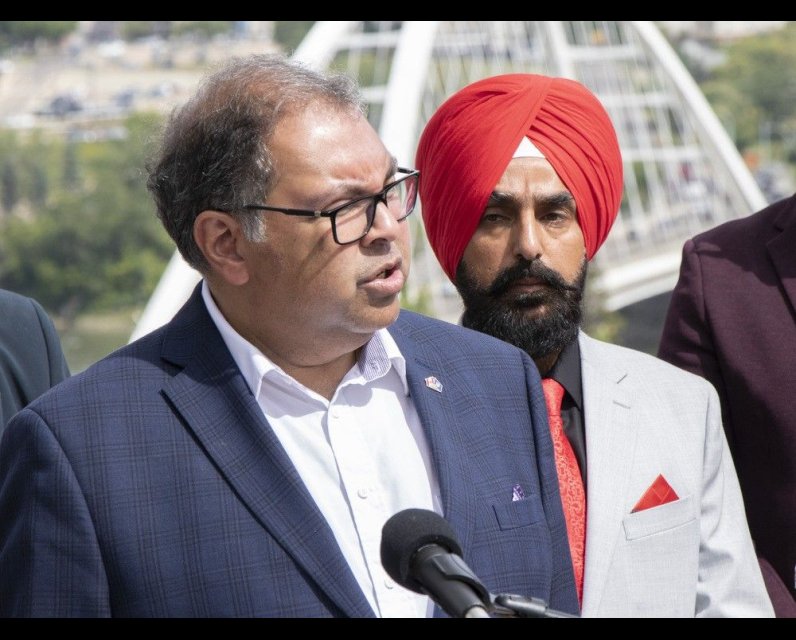Nenshi says Canada must engage with China on canola tariffs but surtax on Chinese EVs outside his 'pay grade'

OTTAWA — Alberta NDP Leader Naheed Nenshi said Friday that he wouldn’t join the chorus of Western Canadian political leaders calling on Ottawa to drop tariffs on Chinese electric vehicles, saying the issue was beyond his depth.
“The ban on Chinese EVs (is) a little outside of my pay grade,” said Nenshi when asked about the issue at an unrelated press conference in Calgary.
Nenshi stressed that Canada needs to engage directly with China’s government to resolve the escalating trade war, which has inflicted heavy damage on farmers in Alberta and other western provinces, but said he “didn’t know” if Chinese electric vehicles would be “part of that deal.”
He did allow that tariffing Chinese electric vehicles “clearly hasn’t worked the way it was supposed to work.”
Nenshi called in a statement last month for both Ottawa and Alberta’s provincial government to negotiate with China and roll out supports for farmers affected by the dispute.
China slapped a 76 per cent tariff on Canadian canola seeds last month, in a move that was widely seen as a response to the 100 per cent surtax Canada placed on all Chinese electric vehicles last fall .
Alberta Premier Danielle Smith and Saskatchewan Premier Scott Moe have both called on the federal government to drop this surtax , in hopes of resolving the trade dispute.
Saskatchewan NDP leader Carla Beck has also called on Prime Minister Mark Carney to consider removing the surtax as a “conciliatory measure” to end the canola tariffs.
Federal Conservative Leader Pierre Poilievre, who recently won a byelection in rural Alberta, also said Friday that he wouldn’t be joining calls for the tariff to be dropped, saying that Chinese electric vehicles still pose too much of a security risk.
“China wants these electric vehicles to be roving surveillance on our streets, and in 10 years, god forbid there’s a conflict and then there’s millions of those vehicles surveilling our population,” Poilievre told reporters in Ottawa.
Poilievre said that the federal government should instead cancel the $1-billion loan it recently gave BC Ferries to buy Chinese-built vessels.
China is Canada’s top export market for canola seeds, purchasing some $4 billion of product last year . A recent analysis found the seed tariff cost canola growers across Western Canada $140 million in just two weeks .
Saskatchewan and Alberta produce roughly 85 per cent of Canada’s canola.
National Post rmohamed@postmedia.com
Our website is the place for the latest breaking news, exclusive scoops, longreads and provocative commentary. Please bookmark nationalpost.com and sign up for our politics newsletter, First Reading, here.


Comments
Be the first to comment